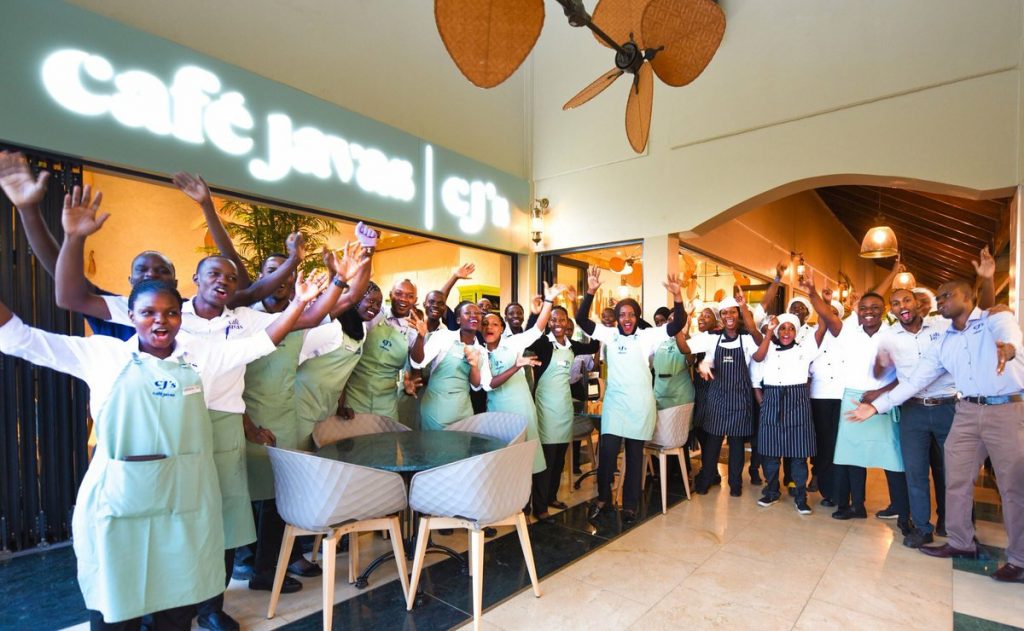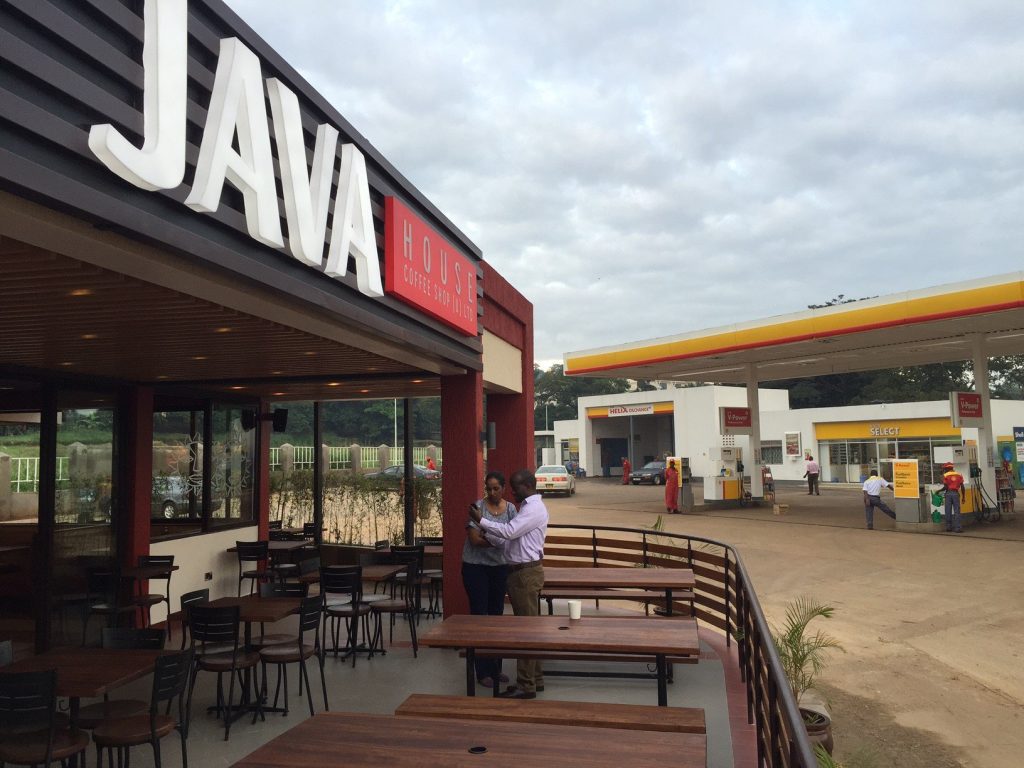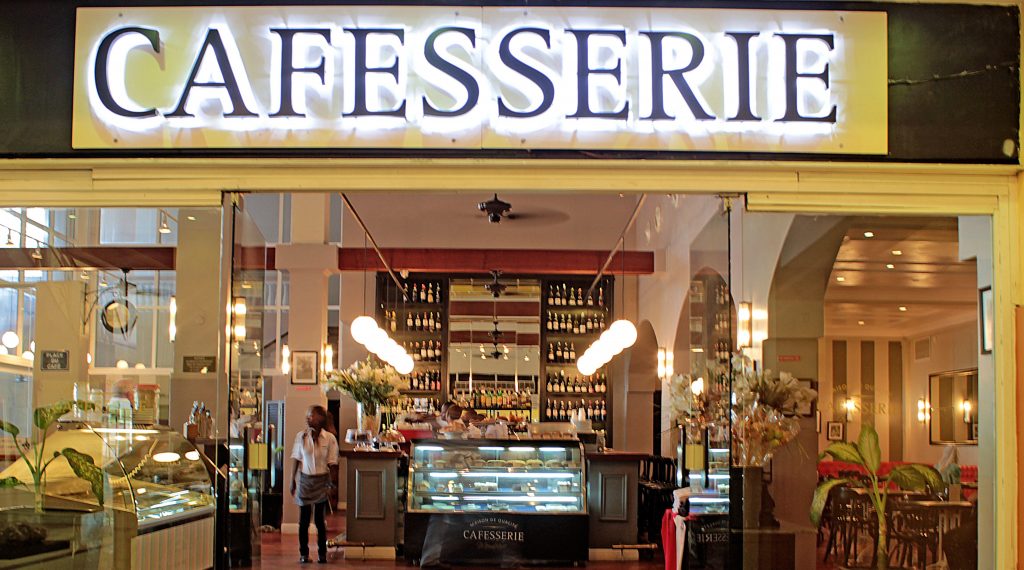Café Javas ended 2018 at a high- a gross turnover of UGX27.1 billion, according to our highly placed sources.
This was a 48.1% jump from the UGX18.3 billion turned over in 2017, marking yet another year of growth for the food and beverage outlet, which has become famous for good food, ambience and great service in Kampala.
And the public has rewarded them with a proportionate share of their throats and wallets as well.
In the 4 years to 2018, sales turnover has been growing at annual compounded growth rate of 31%. Buttressed by an expanded foot print- now made of 9 outlets; 8 in Kampala and 1 in Entebbe, Café Javas has ramped-up their sales revenue from the UGX9.2 billion in 2015, growing it to UGX13.6 billion in 2016, then UGX18.3 billion in 2017 and closing 2018 at UGX27.1 billion.
Even if this is yet to translate into fat net profits- Café Javas netted UGX100 million in 2015, UGX200 million in 2016, UGX900 million in 2017, ending 2018 with a net profit of UGX1.2 billion- on average an annual growth rate of 86%, their performance to date could be a sign of good things to come.
A memorable dining experience
Café Javas is part of Mandela Group of Companies, the parent company to Cafe Javas, City Tyres, City Oil, City Lubes, City World, Savers, Mandela Millers and Mandela Auto Spares.
The group was founded by businessman Omar Mandela.
On their website, Café Javas, describes itself as “a fully-fledged restaurant specializing in delivering a relaxed and memorable dining experience.”

They currently have 12 locations; 8 in Kampala, 1 in Entebbe and 3 in Nairobi. In fact they are one of a handful of Ugandan businesses to expand to Kenya and they seem to be doing well.
According to the website- each location features a “unique ambience with tasteful décor, specially designed” for individual comfort, complemented by “over 300 carefully selected, mouth-watering menu items.”
“Whatever your taste, it’s well catered for,” they dare their customers.
They also boast of great customer service.
“We value you. That’s why you’ll always be served with excellence by each member of our highly skilled team members. Eager to serve you, our experienced wait staff greet you at the door and lead you to the table of your choice in the well thought out seating arrangement,” they claim.
A walk into any of their restaurants- actually proves this; the outlets may be different in architecture and look and feel- but if there is one thing most customers agree on, is the swift service, freshness of food and yes, their portions are generous too!
Café Javas is also not afraid to show off what they say is the “rich aroma” of their “freshly ground coffee” which in their words, is “the handiwork of skilled baristas, adept in latte art.”
“This ensures you get a freshly prepared cup of coffee as the beans are roasted on site,” they show-off.
Café Javas turns up the heat for competition
But don’t let the Café Javas’ juicy and sizzling story fool you into thinking Kampala’s food business is all that a feisty growth story.
In fact Café Javas growth seems to be taking a toll on some of their closest rivals.
One such rival is Java House Africa, the out-of-Nairobi coffee-led restaurant.
Late last year, when Café Javas opened their 9th Ugandan store at Game Stores’ Lugogo Mall, social media commentators, said the nearby Java House outlet at Shell Lugogo would fall. Well it didn’t, but their signature outlet at Bugolobi’s Village Mall, closed, a few months later, reducing their foot print from 6 to 5 outlets.
And it didn’t just close, it gave way to Cafesserie, one of their competitors.
Although Java House brushed off Café Java’s rise as a cause of their problems- in fact, Emily Nyiha, the Communications &Events Coordinator at Java House Africa in Nairobi, in a phone call to this reporter, prefers to think they don’t have any problems at all, calling the closure of the Bugolobi branch a mere ”re-alignment of the business”, the truth is not difficult to see.

A close look at their figures, indeed shows a little bit more than a mere realignment.
For example while Java House grew their turnover by 101% from UGX5.2 billion in 2016 to UGX10.5bn in 2017, in 2018, they experienced a 17.1 % decline in turnover, to UGX8.7 billion. And this has put more pressure on their net revenue- for the 3 years, they have been loss making- from a loss of UGX3.2 billion in 2016, to a loss of UGX4.1 billion in 2017. This reduced slightly to UGX3 billion in losses in 2018.
Asked about the losses and if the closure of the Bugolobi outlet was meant to partly cut down on costs- especially the over UGX264 million in annual rent, Nyiha instead sidestepped the question and said, Java House was preparing for a major expansion exercise in the region.
“As you are aware, we are growing in the region and are planning more outlets in the coming days,” she said.
This July, Actis, a global emerging markets investment firm focused on the private equity, energy, infrastructure, and real estate asset classes announced it had assumed management rights on Abraaj Private Equity Fund IV (APEF IV), Abraaj Africa Fund III (AAF III)- a transaction that includes 14 portfolio companies, including Java House Africa.
ALSO READ: FOOD WARS: Cafesserie pushes Java House out of Village Mall; to open second branch in October https://www.ceo.co.ug/food-wars-cafesserie-pushes-java-house-out-of-village-mall-to-open-second-branch-in-october/
Abraaj Holdings, is the troubled Dubai private equity firm that acquired 90% of Java House Africa, for a reported $100 million, in late 2017. This would mean that now Actis is the new owner at Java House and hopefully this will infuse some fresh energy and cash too!
This January 2019, Java House announced they would infuse a further $10 million in an expansion exercise in the region and have since opened up a handful of outlets in Nairobi and 1 in Kigali Rwanda.
Cafesserie under pressure too
Don’t let Cafesserie’s move to Village Mall fool you into thinking theirs has been too rosy a picture!
They are under pressure too and are looking to a second outlet to increase their share-of-throat and hopefully share of wallet too.

Cafesserie, with their one outlet at the swanky Acacia Mall in Kololo is famous for their Italian coffee, French bakery and continental cuisine.
They opened in Uganda in 2014 and by the end of 2015, business was brisk- they turned over UGX2.5 billion and a profit of UGX400 million; a rare story of profitability in just less than 2 years.
But in 2016, turnover reduced to UGX2.4 billion and they made a loss of UGX200 million. In 2017 sales turnover grew by UGX600 million, reaching UGX3.1 billion, but they still made a UGX200 million loss. Last year, turnover grew cheerlessly to UGX3.2 billion and the losses still hovered at UGX150 million.
Although it is difficult to directly link their lukewarm performance to the rise of Café Java’s, considering the fact that between 2015 and 2018 Cafesserie’s annual growth averaged at 6% compared to Café Javas galloping 31%- facts speak for themselves.
We are now well deep into 2019 and can’t wait tell the second part of this story, come 2020.

